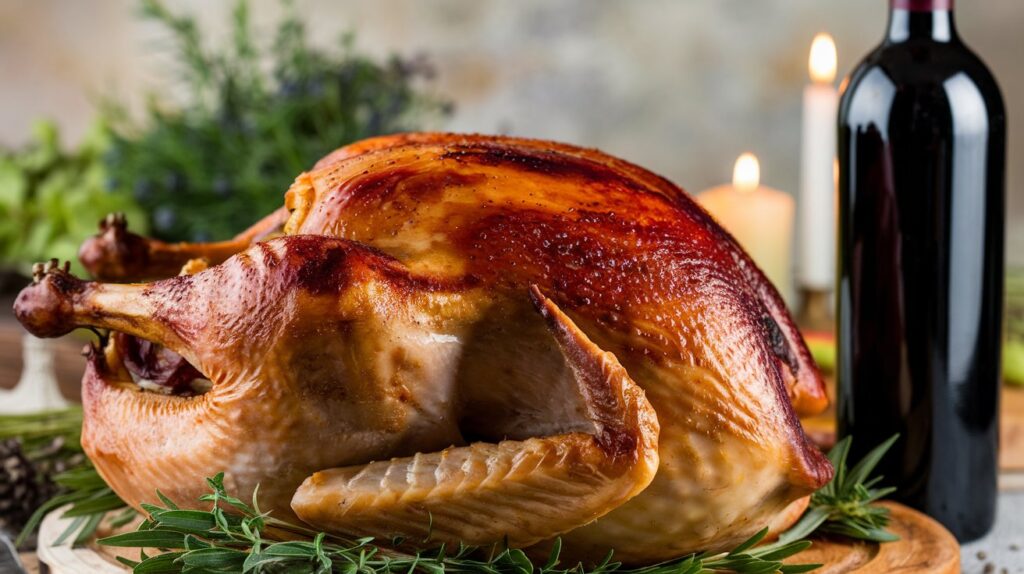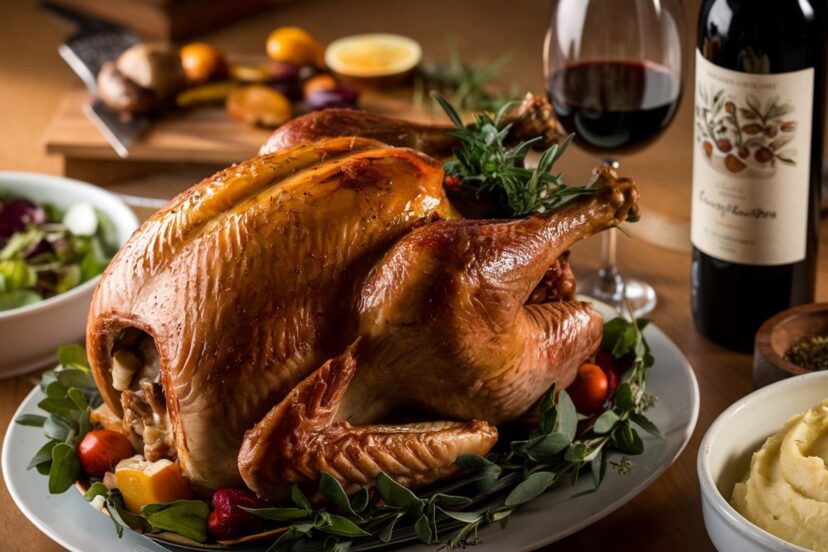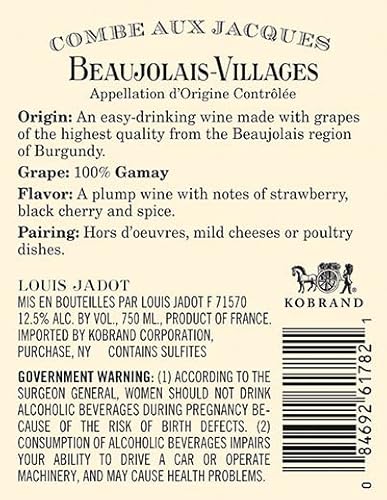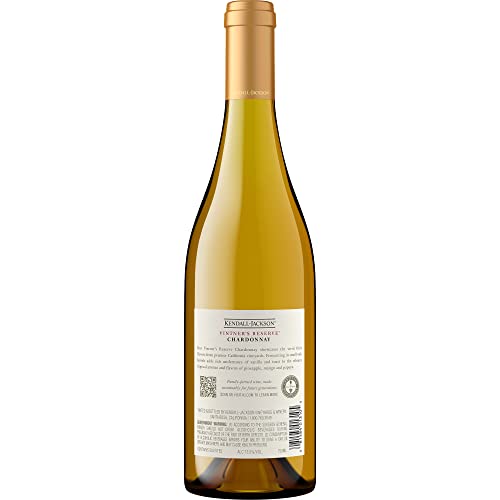The Perfect Pour: Finding the Best Wine with Turkey
Post Disclaimer
*We may earn a commission for purchases made using our links. Please see our disclosure to learn more.
When it comes to serving turkey, whether for a holiday feast or a simple Sunday dinner, finding the right wine can transform your meal from ordinary to extraordinary. I’ve spent years experimenting with different wine pairings, and turkey presents a fascinating challenge with its combination of lean white meat and richer dark meat.
I believe that wine should enhance your dining experience, not complicate it. Through countless tastings and dinner parties, I’ve discovered that while some wines consistently shine with turkey, the perfect pairing also depends on your preparation method, accompanying sides, and personal preferences.
In this guide, I’ll walk you through my favorite turkey-friendly wines, recommend specific bottles available on Amazon, and answer common questions to help you pour with confidence at your next turkey dinner. Whether you’re a wine enthusiast or simply looking for a reliable bottle to bring to Thanksgiving, I’ve got you covered.
Key Takeaways
- Versatility wins: Turkey pairs well with various wines, but medium-bodied options with good acidity generally work best
- Pinot Noir is the classic red wine choice for turkey, offering bright acidity and subtle earthiness
- Beaujolais provides a lighter, fruit-forward alternative to heavier reds
- Chardonnay (particularly unoaked or lightly oaked) brings creamy richness that complements white meat
- Riesling (especially off-dry versions) works beautifully with turkey, particularly when sweeter sides are involved
- Rosé offers an excellent year-round option that bridges red and white wine characteristics
- The best pairings often depend on your turkey preparation and side dishes
- Choose a wine you personally enjoy—there are no wrong answers when it comes to personal preference
Top Wines to pair with Turkey
1. Meiomi Pinot Noir
MEIOMI Pinot Noir is a rich, fruit-forward red wine crafted from a blend of Monterey, Santa Barbara, and Sonoma County grapes. Aged 6 months in 100% French oak, it offers a smooth, velvety texture with layers of blackberry, cherry, raspberry, and blueberry flavors. The wine’s supple tannins and balanced acidity create a well-rounded profile, making it an excellent choice for pairing with a variety of dishes. Whether you're enjoying tomato-based pastas, grilled meats, or even turkey, this Pinot Noir is a versatile and flavorful option.
- Rich, Smooth Flavor – Layers of dark berries with a silky, well-balanced finish
- Versatile Pairing – Pairs well with pizza, pasta, lamb, and turkey
- French Oak Aging – Enhances depth with subtle spice and vanilla notes
- Higher Price Point – More expensive than some other Pinot Noirs
- Fuller Body for a Pinot Noir – May not suit those who prefer lighter reds
- Slightly Sweeter Profile – May not appeal to fans of dry, earthy Pinot Noirs
This California Pinot Noir has become my reliable go-to for turkey dinners. It offers a perfect balance of ripe fruit flavors (think strawberry and cherry) with subtle oak and a silky texture that complements both white and dark turkey meat. What sets Meiomi apart is its accessibility, it’s complex enough to satisfy wine enthusiasts while remaining approachable for casual drinkers.
I particularly appreciate how its bright acidity cuts through the richness of gravy and stuffing, while its fruit-forward profile harmonizes with cranberry sauce. The gentle tannins won’t overwhelm delicate turkey breast but still provide enough structure to stand up to darker meat. For large gatherings where guests have varying wine preferences, this bottle consistently pleases the crowd.
2. Louis Jadot Beaujolais-Villages Combe Aux Jacques
Crafted from handpicked grapes sourced from the finest vineyards in northern Beaujolais, Louis Jadot Beaujolais-Villages Combe Aux Jacques is a vibrant, fruit-forward red wine with expressive red berry aromas and a smooth finish. Made using traditional Burgundian methods, this wine undergoes extended maceration to enhance color and tannin extraction, resulting in a balanced, crisp yet juicy profile. Perfect for those who enjoy a lighter red, it pairs beautifully with grilled white meats, roasted poultry, and light red meat dishes.
- Bright, Fruity Profile – Bursting with ripe red berry flavors and a refreshing acidity
- Easy to Pair – Complements a variety of light meats and roasted dishes
- Smooth & Approachable – Low tannins make it enjoyable for casual sipping
- Lighter Body – May not satisfy those who prefer bold, full-bodied reds
- Higher Acidity – Might be too tart for some palates
- Short Aging Potential – Best enjoyed young rather than cellared for years
When I want a bright, crowd-pleasing red that won’t overwhelm a meal, I often reach for Louis Jadot Beaujolais-Villages Combe Aux Jacques. This fruit-forward, juicy wine bursts with ripe red berry flavors, minimal tannins, and a refreshing acidity that makes it incredibly versatile with food.
What I love about this Beaujolais is its easygoing nature, it’s lively yet smooth, making it a fantastic choice for holiday gatherings or casual dinners. Its light body and crisp finish refresh the palate, especially when paired with grilled white meats, roasted poultry, or even a classic turkey dinner. The bright red fruit flavors remind me of cranberry sauce in wine form, creating a natural harmony with a variety of dishes.
3. Kendall-Jackson Vintner’s Reserve Chardonnay
Smooth, rich, and beautifully balanced, Kendall-Jackson Vintner's Reserve Chardonnay is America’s #1 selling Chardonnay for over two decades. Bursting with tropical fruit flavors, citrus notes, and a touch of vanilla and honey, this wine offers a creamy texture with hints of toasty oak and butter for a luxurious finish. Perfectly versatile, it pairs effortlessly with grilled chicken, salmon, creamy pasta, and seafood dishes.
- Rich & Balanced Flavor – Tropical fruit, citrus, vanilla, and buttery oak create a smooth and complex profile.
- Food-Friendly – Complements a variety of dishes, from seafood to creamy pastas.
- Award-Winning – Consistently praised, earning 90 points from Wine Enthusiast.
- Slightly Oaky – May not appeal to those who prefer unoaked Chardonnays.
- Vintage Variability – The flavor profile may change slightly from year to year.
- Mild Sweetness – Not ideal for those who prefer a very dry white wine.
This widely available white wine offers impressive quality and consistency. With notes of tropical fruit, vanilla, and butter balanced by refreshing acidity, it complements the white meat of turkey beautifully. The hint of oak provides just enough structure to stand up to the savory aspects of the meal without overwhelming the delicate flavors.
I’ve found this Chardonnay particularly versatile with different turkey preparations. Its creamy texture mirrors the mouthfeel of turkey with gravy, while the fruit notes brighten the overall experience. For guests who prefer white wine, this bottle provides enough complexity to remain interesting throughout the meal while maintaining approachability.
4. Chateau Ste. Michelle Harvest Select Riesling
This refreshing and slightly sweet Riesling from Washington’s Columbia Valley is bursting with ripe peach, apricot, and mango flavors, balanced by floral notes and a crisp finish. With its low alcohol content (10.5%), it's an easy-drinking wine that pairs beautifully with lightly spiced dishes, fresh fruit, and soft cheeses. Serve chilled for an extra refreshing experience.
- Bright & Fruity – Bursting with peach, apricot, and tropical fruit flavors.
- Food-Friendly – Pairs well with spicy cuisine, cheeses, and fruity desserts.
- Lower Alcohol – A great option for a lighter drinking experience.
- Slightly Sweet – May not appeal to those who prefer dry wines.
- Vintage Variability – Flavor profile may change slightly each year.
- Best Served Chilled – Needs proper chilling for optimal taste.
When serving a turkey dinner with sweet or spicy elements, this Harvest Select Riesling from Washington State is my go-to choice. Its ripe peach, apricot, and honeyed notes offer just the right touch of sweetness, while the crisp acidity keeps it refreshing and food-friendly. Whether paired with spiced turkey, glazed ham, or buttery side dishes, it balances richness beautifully.
What makes this wine stand out is its versatility on the holiday table. The sweetness mellows heat from spiced dishes, while its bright acidity cuts through heavier flavors. For those who enjoy a slightly off-dry wine that complements both sweet and savory elements, this Riesling delivers elegance and crowd-pleasing appeal.
Understanding Wine and Turkey Pairing Fundamentals
The key to successful turkey and wine pairing lies in understanding a few basic principles. Turkey meat itself is relatively mild, which means it won’t clash with most wines. However, this mildness also means it won’t enhance or bring out hidden flavors in a wine the way some stronger-flavored proteins might.
I’ve found that acidity is crucial when pairing wine with turkey. Wines with good acidity act like a squeeze of lemon on food, they brighten flavors and cleanse the palate between bites. This is especially important with turkey, as it can sometimes come across as dry, particularly the breast meat.
Body is another important consideration. The white meat calls for wines with less body and more brightness, while the darker meat can stand up to wines with more structure and weight. This is why medium-bodied wines often provide the best compromise.
Red Wines That Shine With Turkey
The Pinot Noir Perfection
Pinot Noir consistently ranks as one of the best red wines for turkey, and for good reason. Its moderate tannins won’t overshadow the delicate meat, while its acidity cuts through richness. The wine’s red fruit profile (think cherries, cranberries, and raspberries) harmonizes beautifully with turkey and traditional accompaniments like cranberry sauce.
I prefer Pinot Noir from cooler regions for this pairing, Oregon’s Willamette Valley, California’s Russian River Valley or Sonoma Coast, New Zealand’s Central Otago, or France’s Burgundy. These areas produce Pinots with the right balance of fruit, earth, and acidity to complement turkey without overwhelming it.
The Beaujolais Option
For those seeking something lighter than Pinot Noir, Beaujolais offers an excellent alternative. Made from the Gamay grape, these wines deliver bright red fruit flavors, refreshing acidity, and minimal tannins. The regular Beaujolais or Beaujolais-Villages classifications provide affordable options, while the ten Beaujolais Crus (like Fleurie, Morgon, or Moulin-à-Vent) offer more complexity for special occasions.
What I appreciate about Beaujolais with turkey is its uncomplicated nature. These wines don’t demand attention but rather enhance the meal with their juicy fruit character and refreshing quality. They’re also typically lower in alcohol, making them ideal for extended holiday gatherings.
Other Red Contenders
While Pinot Noir and Beaujolais are my top recommendations, other red wines can work well with turkey. Lighter styles of Grenache or Grenache blends offer spicy red fruit character that complements herb-roasted turkey. Certain Italian reds like Barbera or Chianti, with their higher acidity and moderate tannins, can also make excellent partners.
I generally avoid heavily tannic wines like young Cabernet Sauvignon or Syrah with turkey, as they can overwhelm the meat and create metallic flavors when paired with cranberry sauce. However, if dark meat is your preference, these more robust reds become more viable options.
White Wines That Complement Turkey Beautifully
Chardonnay Considerations
Chardonnay represents one of the most versatile white options for turkey. The key is finding the right style, heavily oaked, buttery Chardonnays can overwhelm, while those with moderate oak influence or none at all (unoaked) offer a better balance.
I look for Chardonnays from cooler regions that maintain good acidity while developing apple, pear, and citrus flavors. Chablis from France represents the leaner, mineral-driven end of the spectrum, while California’s cooler coastal regions can provide more fruit-forward options with judicious oak that complements the meatier aspects of turkey.
The Riesling Renaissance
Don’t underestimate Riesling’s power to transform a turkey dinner. This aromatic white grape produces wines ranging from bone dry to sweet, with electric acidity that cuts through rich foods. For turkey, I often recommend off-dry (slightly sweet) Rieslings that balance the savory aspects of the meal while complementing sweeter side dishes.
German Rieslings labeled as Kabinett or Spätlese, Alsatian Rieslings, and domestic options from Washington State or New York’s Finger Lakes region all offer unique expressions that pair wonderfully with turkey. The wine’s fruit character (often apple, peach, and apricot) provides a refreshing counterpoint to the savory meat.
Viognier and Other Aromatic Whites
Aromatic white wines like Viognier, Gewürztraminer, or even Pinot Gris can offer delightful turkey pairings for those willing to explore beyond the classics. These wines provide rich texture and pronounced floral and fruit characteristics that stand up well to the varied flavors of a turkey dinner.
Viognier, with its full body and notes of peach, apricot, and honeysuckle, complements herb-rubbed turkey preparations beautifully. Gewürztraminer’s distinctive lychee, rose petal, and spice notes work especially well with turkey dishes that incorporate exotic spices or fruit elements.
Don’t Forget Rosé and Sparkling Options
Rosé All Year
One of my favorite turkey pairings might surprise you: rosé wine. Often pigeonholed as a summer sipper, a good dry rosé actually offers the perfect middle ground between red and white wines. The best rosés for turkey provide the refreshing acidity of white wine with some of the structure and red fruit notes of lighter reds.
Look for rosés from Provence, the Loire Valley (especially those made from Cabernet Franc), or domestic options from cooler regions. These wines offer the versatility to complement both white and dark meat, along with the varied sides that typically accompany turkey.
Sparkling Celebrations
Sparkling wine represents perhaps the most versatile option of all for turkey dinners. The bubbles and acidity cleanse the palate between bites, while the typically lower alcohol content works well for extended meals.
While Champagne makes any occasion special, more affordable options like Spanish Cava, Italian Prosecco, or American sparkling wines offer excellent quality at lower price points. For turkey, I prefer brut (dry) styles that won’t compete with the sweetness of side dishes like cranberry sauce or sweet potatoes.
How Turkey Preparation Affects Wine Choice

The way you prepare your turkey significantly impacts the ideal wine pairing. A classically roasted turkey with herbs and butter calls for different wines than a smoked turkey or one with bold spices.
For traditional herb-roasted turkey, medium-bodied wines with good acidity work well, think Pinot Noir, unoaked Chardonnay, or dry rosé. Smoked turkey calls for wines with more intensity to stand up to the smoky flavors, perhaps a richer Chardonnay or even a light Syrah.
When preparing turkey with bolder spices or heat, consider wines with a touch of sweetness to balance the spice. Off-dry Riesling or Gewürztraminer often work beautifully in these situations, providing a counterpoint to the spice while refreshing the palate.
Don’t Forget About The Sides
The array of side dishes that typically accompany turkey creates both challenges and opportunities for wine pairing. Sweet cranberry sauce, rich gravy, savory stuffing, and tangy vegetables all influence how a wine will interact with the meal.
This diversity is actually why medium-bodied, versatile wines tend to work best. If your sides lean heavily toward sweeter flavors, you might prefer a wine with enough sweetness to handle them, like an off-dry Riesling or Gewürztraminer. If savory dishes dominate, a medium-bodied red like Pinot Noir or a richer white like Chardonnay might be more appropriate.
Remember that the most prominent or strongly flavored side dish often has a greater impact on wine pairing than the turkey itself. Consider which sides will feature most prominently in your meal when selecting your wine.
Conclusion: Personal Preference Trumps Rules
After all my years of wine exploration, the most important lesson I’ve learned is that personal preference matters more than following strict rules. While I can recommend wines based on traditional pairing principles, your own palate should be the ultimate guide.
I encourage you to experiment with different wines to discover what you enjoy most with turkey. Perhaps open a couple of different bottles at your next turkey dinner and see which pairings you and your guests prefer. Wine pairing should enhance enjoyment, not cause stress!
Remember that serving temperature can significantly impact how a wine pairs with food. I generally serve reds slightly cooler than room temperature (around 60-65°F) and whites well-chilled but not ice-cold (around 45-50°F) to allow their flavors to fully express themselves.
Ultimately, the best wine with turkey is the one that you and your guests enjoy drinking, no matter what any expert might say. Trust your palate, keep an open mind, and don’t be afraid to try new combinations. You might discover your own perfect turkey pairing that defies conventional wisdom but delights your taste buds.
Frequently Asked Questions
1. Is red or white wine better with turkey?
Both can work beautifully, there’s no definitive answer. Turkey’s versatility makes it compatible with many wines. If you prefer red wine, lighter to medium-bodied options like Pinot Noir or Beaujolais generally work best. If you prefer white, look for options with some body and good acidity, like Chardonnay or Riesling. When in doubt, rosé offers a fantastic middle ground that combines characteristics of both red and white wines.
2. What wine goes with turkey if I don’t like dry wines?
If you prefer wines with some sweetness, I’d recommend an off-dry Riesling or Gewürztraminer. These aromatic whites offer enough sweetness to satisfy a palate that doesn’t enjoy bone-dry wines, while still providing sufficient acidity to complement turkey. Some rosés also have a hint of residual sugar that might appeal to you while pairing nicely with turkey.
3. How much wine should I buy for a Thanksgiving dinner?
I typically plan for half a bottle (375ml) per adult guest for a standard dinner, or a full bottle (750ml) per adult for a longer gathering like Thanksgiving where wine might be enjoyed before, during, and after the meal. If you’re offering multiple types of wine, I’d suggest buying less of each kind but ensuring you have enough total.
4. Can I serve the same wine with appetizers and turkey?
You can, but I usually prefer to create a progression. Lighter wines like Sauvignon Blanc, sparkling wines, or light rosés work well with appetizers, then transition to more substantial wines with the main turkey course. If you want to keep it simple with just one wine, sparkling wine or rosé are your most versatile options that can carry through from start to finish.
5. What’s the best budget-friendly wine for turkey?
I’ve found several excellent options that won’t break the bank. For reds, look for Beaujolais-Villages (typically $12-18), which offers bright fruit flavors that complement turkey beautifully. For whites, Washington State Rieslings or unoaked Chardonnays from Chile often provide excellent value in the $10-15 range. Spanish Garnacha (Grenache) and Portuguese red blends can also offer remarkable quality for under $15 if you prefer red wine.
















